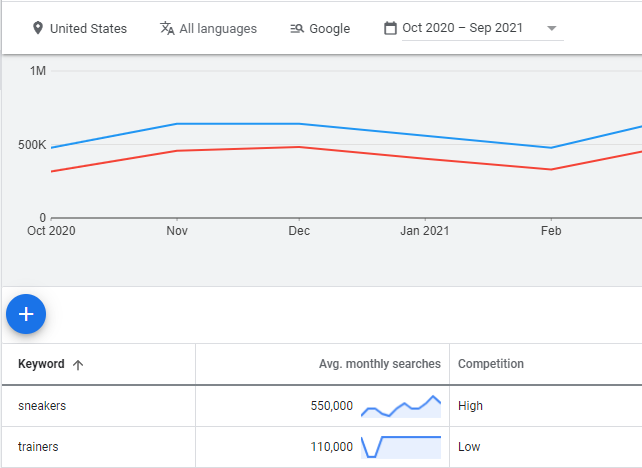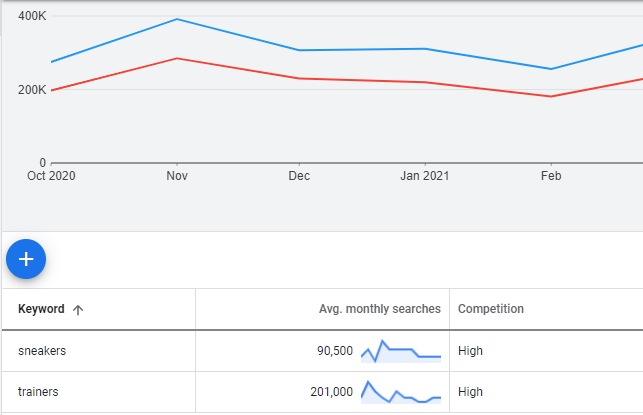Your customers search the internet by typing search terms into a search engine. The search engine then delivers a ranked list of websites that it considers to be the best match for the search term. It does this by comparing the search term to the keywords you specify when you publish your website, as well as by scanning your content. This means that your keywords are vital when it comes to getting your website found by customers who are ready to buy from you.
Deciding on keywords in your native language is pretty simple. For example, if your website sells equipment for horse riding, your website pages could have keywords such as horse riding equipment, equipment for horse riding, horse riding, equestrian care, and so on. If you decide to translate your website into another language, it might seem logical to simply translate your keywords into your new target language.
But that’s not going to get you the best results.
Literal translations of keywords don’t account for the nuances between languages and the different ways that people search for the products and services they’re hoping to buy.
What’s the answer?
Whilst it’s undoubtedly quicker to literally translate your keywords into another language, you need effective translations to make sure your website will be found by your potential customers. Spending some time upfront on multilingual keyword research will save you the headache, time and costs of having to re-optimise your website at a later date. Let’s have a look at some of the problems caused by literal keyword translations, and why multilingual keyword research offers the solution.
Regional nuances
Your customers search for products and services in different ways depending on where in the world they are. Even different cultures that share the same language search the internet using different words and phrases.
The example of running shoes demonstrates this issue well. Imagine that you’re trying to sell running shoes online. In the USA, you might decide on the keyword ‘sneakers’ to capture traffic from users typing this term into a search engine. This is likely to work well as the term ‘sneakers’ is used throughout the USA to refer to running shoes, and it also gets a great deal of online traffic as you can see on the graph below.

This is all well and good – if you’re only selling in the USA. However, if the UK is your target market, the term ‘sneakers’ isn’t going to do nearly as well. Very few people in the UK refer to running shoes as ‘sneakers’, with ‘trainers’ being the popular word of choice. As you can see on the next graph, optimising for ‘trainers’ could get you more than twice the volume of high-value traffic, and the more traffic you get, the more conversions will follow.

Culture, keywords and literal translations
We’re all used to typing a description of what we’re looking for online into a search bar, and then sitting back and waiting for the search engine to deliver the right websites. But the way we describe what we’re looking for varies depending on our culture.
Google and other search engines used to be very literal, meaning that they would use the exact words you type to deliver your list of results. As these search engines have evolved, they’ve started to be a little savvier. Search engines are now capable of ‘understanding’ more about what a user is searching for by ‘learning’ from historical searches. This includes their ability to understand misspellings, typos and slang words.
This all sounds helpful. However, the relevance here is that literal keyword translations, such as those provided by machine translation, either don’t account for cultural variances or are slower to adapt to them. Even Google Translate struggles with cultural variances and slang words. This is a problem for online marketers around the world.
Countries and search volumes
Even when phrases are universal across borders – for example, the terms ‘reasonable’ and ‘inexpensive’ – they might not be used interchangeably by local users searching online. This is why it’s important to do detailed research to make sure that the keywords you’re using are hitting the right spot in your target country.
This is exactly what marketing company Webcertain discovered when researching keywords for an international hotel chain. The task included translating keywords from English to French in order to target the French market. You can see from the table below that literal translations weren’t going to generate anything like a comparable amount of traffic for the translated website.
| English keyword | Search volume (UK) | French translation | Search volume (FR) |
| Cheap hotel | 135,000 | Hôtel pas cher | 8,100 |
| Budget hotel | 14,800 | Hôtel budget | 0 |
| Low cost hotel | 480 | Hôtel bas coût | 0 |
| Economy hotel | 260 | Hôtel classe économique | 0 |
Launching the website with these keywords wouldn’t generate the results this company was hoping for. It might have been quicker and cheaper to simply translate the keywords from English to French, but any savings would have been insignificant compared to the potential cost in lost traffic and conversions in the long term.
By conducting some effective multilingual keyword research, Webcertain was able to provide some keywords with a far better potential for attracting traffic and achieving a good return on investment for the hotel chain:
| French translation | Search volume (FR) | Keyword research | Search volume (FR) |
| Hôtel pas cher | 8,100 | Hôtel pas cher | 8,100 |
| Hôtel budget | 0 | Hôtel pas cher | 8,100 |
| Hôtel bas coût | 0 | Hôtel moins che | 1,900 |
| Hôtel classe économique | 0 | Reservation hôtel pas cher | 880 |
Conclusion
Although using a literal translation of keywords is quick and simple, it’s counterproductive when it comes to ensuring that your website not only attracts visitors but also converts those visitors into customers.
Literal translation doesn’t take language nuances or cultural variations into account. This is why multilingual keyword research is vital.
We understand that international keyword strategy can be complex, and it’s certainly time-consuming – but it’s worth it for your business.
